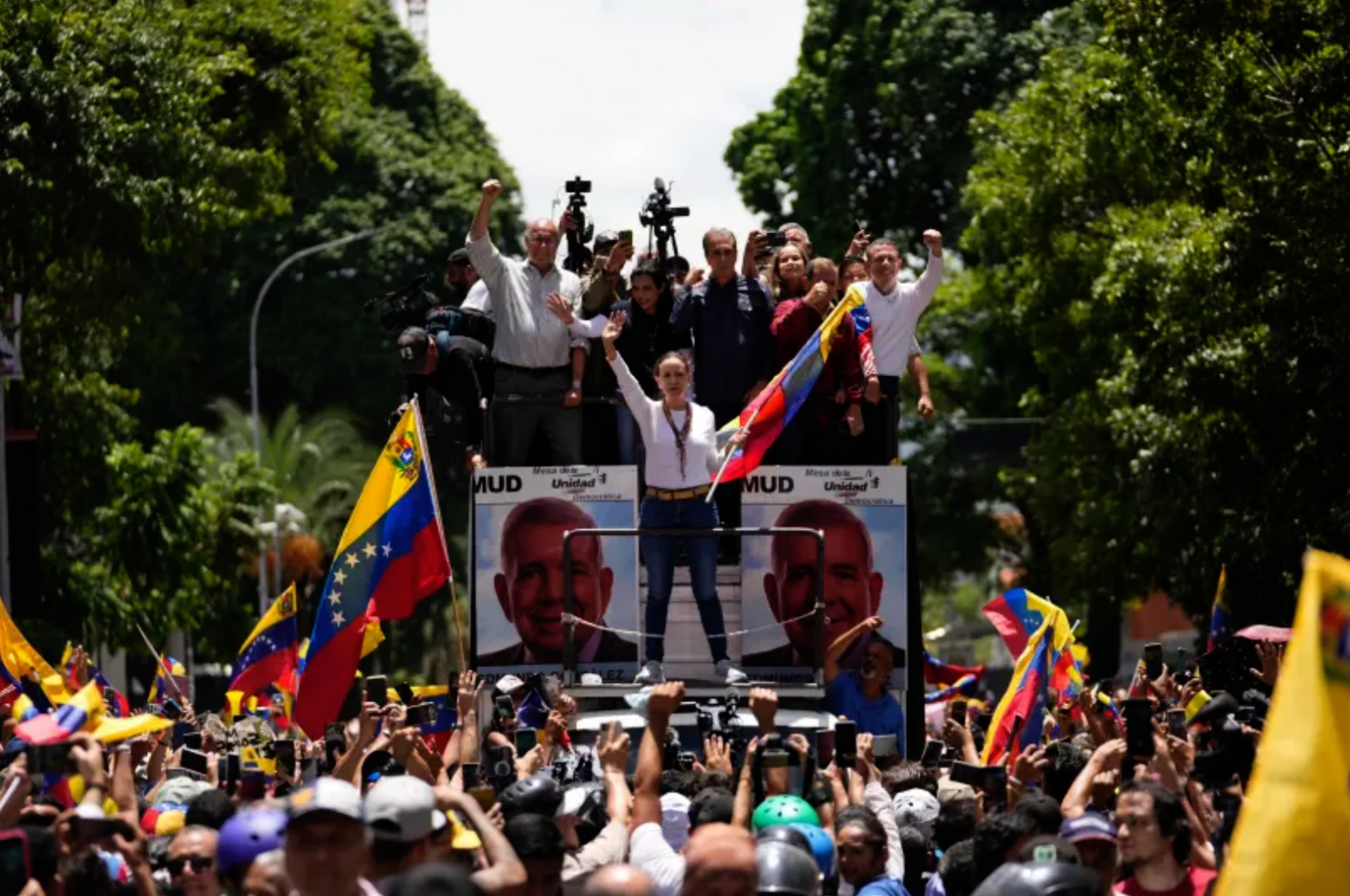In the midst of a polarised and tense political landscape, Venezuela has once again become a focal point for international observers as its recent elections unfolded with high stakes and fervent expectations. The preliminary outcomes, though not yet fully confirmed, have already set the stage for significant political, social, and economic repercussions in the country.
The electoral process, marked by allegations of irregularities and voter intimidation, has seen the ruling party, the United Socialist Party of Venezuela (PSUV), claim a narrow victory over the opposition coalition. President Nicolás Maduro, who has been at the helm since 2013, hailed the results as a reaffirmation of the people’s trust in his leadership and the socialist revolution. However, the opposition, led by the Democratic Unity Roundtable (MUD), has contested the results, citing widespread fraud and calling for international scrutiny.
Observers from the European Union and various Latin American organisations have reported numerous instances of voter suppression, media censorship, and the misuse of state resources to sway public opinion. These reports have further fueled the opposition’s claims, leading to calls for mass protests and civil disobedience. The international community, including the United States and the European Union, has expressed concern over the integrity of the election, with some nations already signaling their reluctance to recognize the results.
The economic situation in Venezuela remains dire, with hyperinflation, food and medicine shortages, and a collapsing infrastructure continuing to plague the nation. The election, rather than providing a clear path forward, has deepened the sense of uncertainty. For many Venezuelans, the immediate future looks bleak, with fears of intensified political repression and economic hardship looming large.
Despite the turmoil, there is a sense of cautious optimism among some segments of the population. The opposition’s strong performance, even if not officially recognized, indicates a significant shift in public sentiment. Grassroots movements and civil society organisations have gained momentum, suggesting that the demand for democratic reforms and accountability is stronger than ever. This growing civic engagement could potentially lead to a more organised and sustained resistance against authoritarian practices.
In the short term, however, the country is bracing for increased volatility. President Maduro’s administration is likely to crack down on dissent, leveraging the military and security forces to maintain control. The potential for violent clashes between protesters and security personnel is high, especially in urban centres like Caracas, where opposition support is strongest.
Internationally, Venezuela’s relations with neighbouring countries and global powers will be crucial in shaping the next phase of its crisis. Sanctions from the United States and the European Union are expected to remain in place, if not intensify, putting additional strain on the already crippled economy. Conversely, nations like Russia, China, and Iran may continue to offer support to Maduro, both as a means of gaining influence in the region and as a counterbalance to Western powers.
Diplomatic efforts to mediate the conflict could see renewed vigour, particularly from regional bodies like the Organization of American States (OAS) and the Community of Latin American and Caribbean States (CELAC). These organisations, along with the United Nations, may push for dialogue between the government and the opposition, though past attempts have often stalled due to mutual distrust and intransigence.
Looking further ahead, the possibility of a transitional government or even new elections cannot be entirely ruled out. Such outcomes would likely require significant concessions from both sides and a robust framework for ensuring electoral transparency and fairness. For now, however, the entrenched positions of the Maduro regime and the opposition suggest a protracted struggle.
For the Venezuelan people, daily life continues to be a battle for survival. The humanitarian crisis, exacerbated by the political impasse, demands urgent attention. International aid organisations may find it increasingly difficult to operate amidst the chaos, and the outflow of refugees to neighbouring countries is expected to rise. Colombia, Brazil, and other nations in the region will need to prepare for the influx, with potential implications for their own social and economic stability.
Education, healthcare, and social services in Venezuela are likely to deteriorate further in the coming months, with long-term consequences for the country’s human capital. Children and young adults, in particular, face an uncertain future, with limited opportunities for advancement and a growing sense of disillusionment.
Despite these challenges, there are pockets of resilience and hope. Community networks and local initiatives continue to provide support and foster solidarity. The spirit of resistance and the desire for a better future remain alive, driving many to continue the fight for democracy and justice.
As Venezuela navigates this turbulent period, the eyes of the world are upon it. The actions of its leaders, the resilience of its people, and the response of the international community will shape the nation’s trajectory. While the path ahead is fraught with difficulties, the potential for change and renewal endures, offering a glimmer of hope amidst the darkness.





















